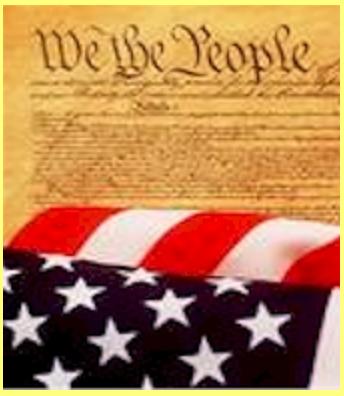Straight Shooter, Liar, or Lawbreaker?
I. Lewis Libby has testified that Vice President Dick Cheney authorized him to leak sensitive classified information calculated to bolster the administration’s position on Iraq. According to Mr. Libby, the Vice President told him that this authorization came directly from President Bush. As of this writing, the White House has neither confirmed nor denied Mr. Libby’s account.
Truth or Fiction?
It is possible that Mr. Libby has fabricated this story. He has a very strong motive to do so. If he can convince the court that his story is true, then he can defend his actions on the grounds that the leaked information was de facto declassified by the President and no laws were broken by his disclosures to the press.
The absence of a denial by the administration, however, tends to lend credence to Mr. Libby’s statements. Although the administration spokesman states that they do not want to comment on a pending legal case, they have in the past shown no such hesitation when they felt the need to deny any wrongdoing. It’s also possible, of course, that Vice President Cheney gave authorization to Mr. Libby without the President’s knowledge. Hopefully, an investigation will eventually reveal the true facts.
Lawbreaker, Liar, or Both?
If it turns out that the President did authorize the leaking of sensitive classified information, two questions come to mine. First, did President Bush break the law by allowing classified information to be disclosed? Second, has the President been dishonest with the American people in his many statements about leaks?
The legal issues will be debated for some time to come. According to the President’s defenders, his authorization to disclose information would itself be a secret declassification of that material. Therefore, it would be perfectly legal for the President or his agents to leak any “classified” information they desire.
President Bush’s honesty, on the other hand, cannot be defended if he did actually authorize the leaks or even have detailed knowledge of the source prior to Mr. Libby’s indictment. If Mr. Libby’s testimony is true, then the President’s past remarks can only be characterized as attempts to deceive the American electorate for political advantage. Here, in his own words, are the President’s repeated denials of any knowledge about leaked information.
President Bush: "I don't know of anybody in my administration who leaked classified information. If somebody did leak classified information, I'd like to know it, and we'll take the appropriate action." (Chicago, Illinois, 9/30/03)
President Bush: "Yes. Let me just say something about leaks in Washington. There are too many leaks of classified information in Washington. There's leaks at the executive branch; there's leaks in the legislative branch. There's just too many leaks. And if there is a leak out of my administration, I want to know who it is. And if the person has violated law, the person will be taken care of. . . . I have told our administration, people in my administration to be fully cooperative. I want to know the truth. If anybody has got any information inside our administration or outside our administration, it would be helpful if they came forward with the information so we can find out whether or not these allegations are true and get on about the business." (Chicago, Illinois, 9/30/03)
Scott McClellan: "The President has set high standards, the highest of standards for people in his administration. He's made it very clear to people in his administration that he expects them to adhere to the highest standards of conduct. If anyone in this administration was involved in it, they would no longer be in this administration." (White House Press Briefing, 9/29/03)
Scott McClellan: "Let me answer what the President has said. I speak for the President and I'll talk to you about what he wants . . .If someone leaked classified information, the President wants to know. If someone in this administration leaked classified information, they will no longer be a part of this administration, because that's not the way this White House operates, that's not the way this President expects people in his administration to conduct their business." (White House Press Briefing, 10/7/03)
President Bush: "I want to know the truth. ... I have no idea whether we'll find out who the leaker is, partially because, in all due respect to your profession, you do a very good job of protecting the leakers." (Fox News, 10/8/03)
President Bush: "I'd like to know if somebody in my White House did leak sensitive information." (10/28/03)
President Bush: Responding to media question referring to "anybody who leaked the agent's (Valerie Plame's) name," and the question, "Do you stand by your pledge to fire anyone found to have done so?" the President responded: "Yes. And that's up to the U.S. Attorney to find the facts." (Press Conference, Savannah, Georgia, 6/10/04)
President Bush: "If someone committed a crime, they will no longer work in my administration." (USA Today, 7/18/05)
Wednesday, April 5th, 2006, the government filed the following court document:
"Defendant's participation in a critical conversation with Judith Miller on July 8 (discussed further below) occurred only after the Vice President advised defendant that the President specifically had authorized defendant to disclose certain information in the NIE. Defendant testified that the circumstances of his conversation with reporter Miller -- getting approval from the President through the Vice President to discuss material that would be classified but for that approval -- were unique in his recollection. . . . During the conversations that followed on July 12, defendant discussed Ms. Wilson's employment with both Matthew Cooper (for the first time) and Judith Miller (for the third time)." (Government's Response to Defendant's Third Motion to Compel Discovery, United States v. I. Lewis Libby, 04/05/06)

